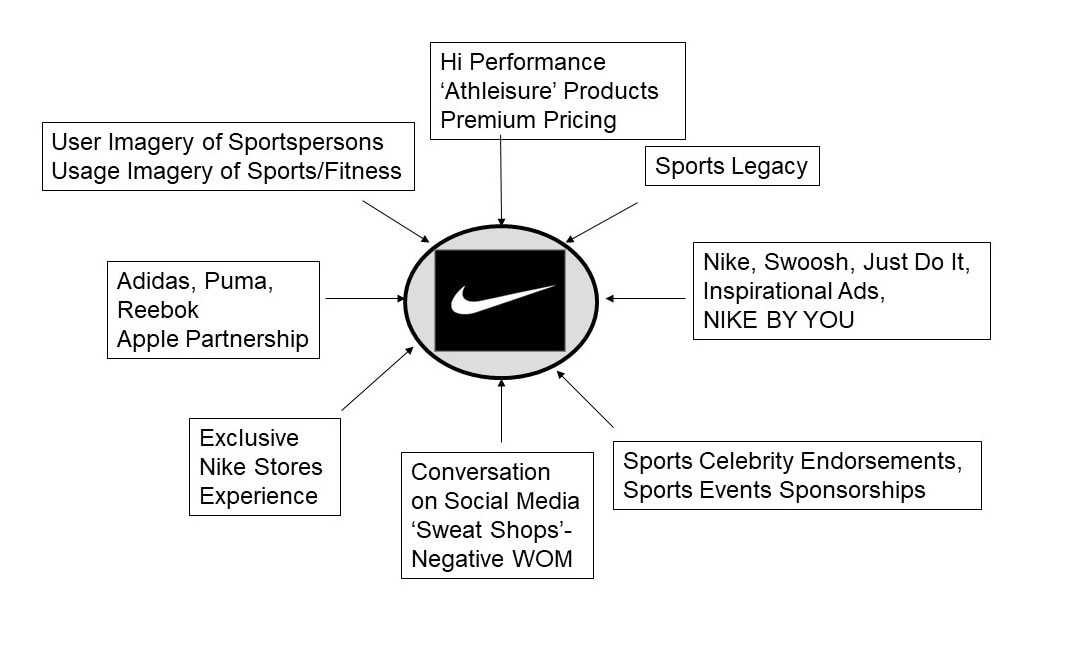Note to readers: Season-2 of our column Marketing Mocktail breaks down and explains the big ideas, new disruptions and old concepts and marketing practices that matter in the modern age.
A brand is a perceptual entity that resides in the consumer’s mind. Perception of a brand is shaped by the various stimuli of the brand.
The Gestalt Principle – the whole is more than the sum of its parts
There is a theory in perception called the ‘Gestalt Principle’, created by German psychologists Max Wertheimer, Kurt Koffka, and Wolfgang Kohler in the 1920s.
The underlying philosophy of Gestalt is that when people perceive an entity, ‘the whole is more than the sum of its parts’. This also applies to how people perceive a brand.
Jeremy Bullmore of JWT said, “A consumer constructs a brand like a bird constructs a nest-from small scraps collected here and there.”
Let us examine the various components that form the total impression of a brand.
As evident in the graphic, there are diverse stimuli and factors impacting the impression of the brand.
Total impression of the brand

A few important aspects to keep in mind are:
· A brand is complex and multi-layered, but since consumers perceive the whole as more than the sum of its parts, the perception gets simplified.
· Some of the factors are in direct control of the marketer, while others are driven by external factors that may not be in control of the marketer.
· The perception is dynamic and never static. It gets reinforced by consistently receiving the same stimuli and it also keeps evolving over time with newer stimuli.
· While there are common set of perceptions that cut across consumers, in addition, each individual forms their own set of perceptions depending on their field of experience and cultural context.
Let’s do it with Nike
Let’s analyze how the total impression of Nike is driven by the various stimuli and factors.
At a product level, Nike in its early days was associated with sports shoes and over time has broadened its association to sportswear and athleisure products.
Nike’s premium pricing has pitched it as a brand that is aspirational.
The user experience of its various offerings, starting with Air Jordan, makes the brand perceived as innovative and cutting edge in its category. Nike introduced products like Hijab and plus sizes to create an image of ‘inclusivity’.
Nike has a rich legacy which is part of marketing and sporting folklore. Engaging stories about the brand have been widely propagated- ‘Shoe Dog’, the book by founder Phil Knight and recently the movie ‘AIR’, about the association with Michael Jordan.
The name Nike stands for the ‘Greek Goddess of Victory’ and implies ‘winning and glory’.
Its distinctive ‘swoosh’ symbol is so well entrenched in the mind, that the brand does not even write its name in the communication. The ‘swoosh’ has become shorthand for the brand.
Nike’s advertising has always been iconic, edgy, and inspirational. It created the fitness culture and is built around the brand idea of ‘Just do it!’
NIKE BY YOU is an online platform that enables consumers to customize their own pair of Nikes.
Endorsements by leading athletes and sportspersons have been a key element of the brand, coupled with sponsorship of local and global sporting events.
The brand generates passionate conversation on social media, often controversial, like the Colin Kaepernick ad. Sometimes, word of mouth can also lead to negative perception and Nike faced a backlash in the late 1990s for its ‘Sweatshop’ scandal. Whichever way, Nike is a highly talked about brand.
The retailing of the brand is omnichannel- covering multiband outlets, exclusive Nike stores and online platforms. Nike’s brand stores are designed to showcase the Nike brand experience to shoppers.
Adidas, Reebok, and Puma are Nike’s key competitors and their image and perception also impact how consumers see Nike.
In terms of partnerships, Apple and Nike introduced Apple Watch Nike+, the ultimate companion for those with a passion for running.
Even though people may wear Nike sneakers and Tees with their jeans to just chill out, the user imagery of Nike is people jogging, running, or playing sports. The brand is strongly associated with fitness, athletics, and sports.
The total impression of Nike in the minds of its consumers is shaped by all these stimuli and yet is more than the sum of these.
Nike’s brand impression aligns with its vision – ‘To bring inspiration and innovation to every athlete in the world (if you have a body, you are an athlete).’
Total impression of Nike

Managing your brand is about managing the stimuli that create the total impression of your brand- to drive the dual engine of distinctiveness and differentiation.
Anand Narasimha is a corporate turned academician with over three decades of experience spanning Brand Marketing, Advertising, Consulting, and Teaching. He writes the column Marketing Mocktail for Storyboard18. Views expressed are personal.
